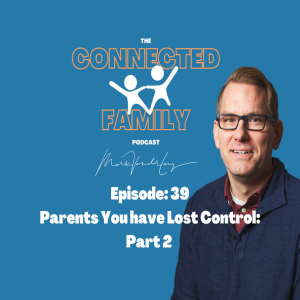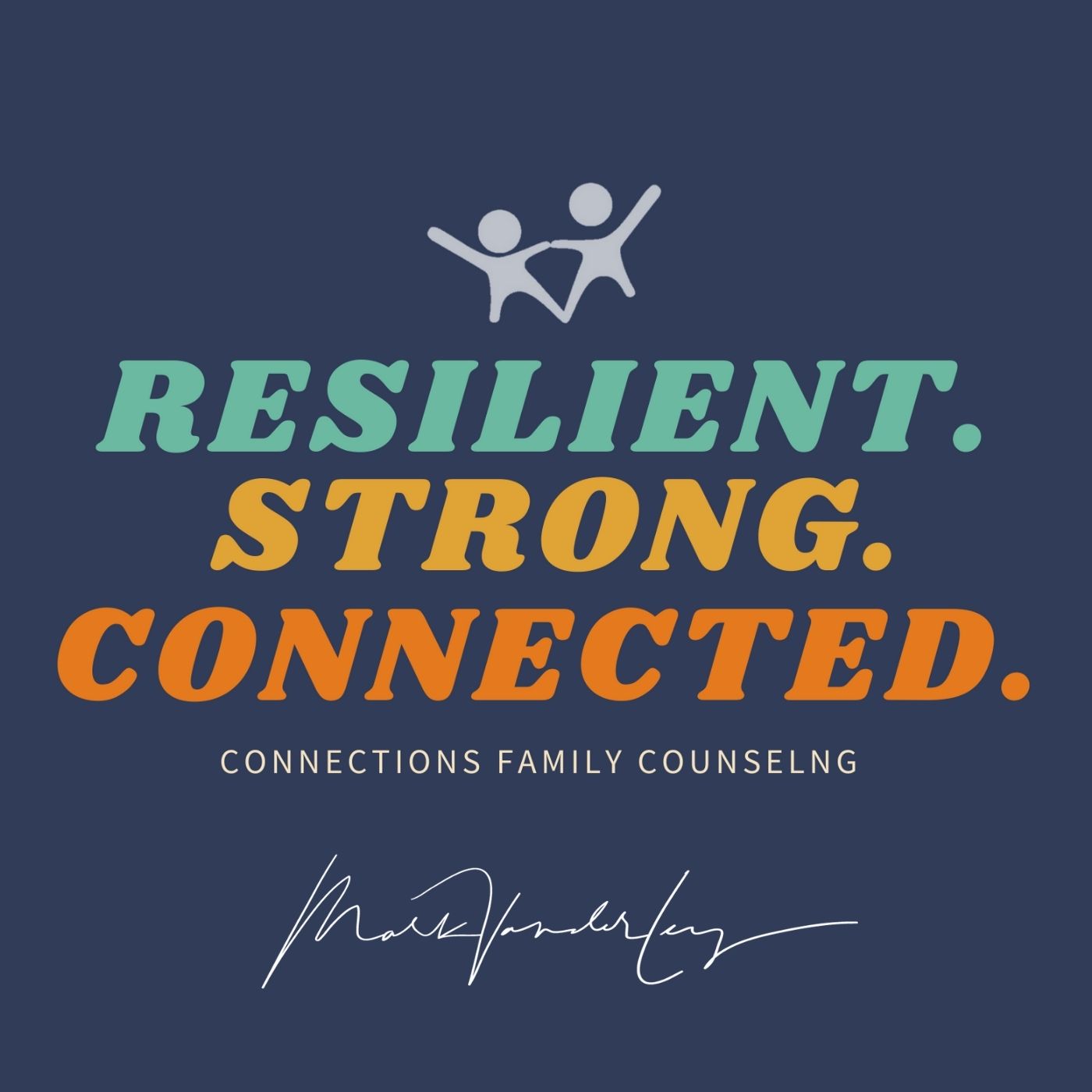Episodes

Sunday Nov 29, 2020
Parents You Have Lost Control: Part 2
Sunday Nov 29, 2020
Sunday Nov 29, 2020
Parents You Have Lost Control: Part
I have many discussions with parents that center around the issue of control. The surprising part for many of them is that I emphasize giving up control rather than maintaining control. It seems to me that parenting is a life-long exercise in gradually giving over more and more control to our very precious children. This process can be a very scary, or even painful, endeavor for many parents, especially when it is done either too quickly or too slowly. Many parents wonder, “If I give up control to my child, then how will he learn what is right?” or “Won’t they end up being wild children who are continually in trouble?” Though it is tempting for some parents to believe that gradually giving control over to their children will result in ineffective or poor behavior, the truth is that giving age-appropriate control to our children is actually in their best interest. In reality, giving more control to your children as they mature will help develop a confident, internal moral compass from which they will make better decisions on their own..
Let’s make the distinction between being “in control” and being “controlling.” Chris Mercogliano in his book “In Defense of Childhood Protecting Kid’s inner wildness.” Describes “in control” as “establishing age appropriate limits, while at the same time supporting children’s growing sense of autonomy by allowing them to make choices and learn from their mistakes” (pg. 9). Being “in control” is setting very clear limits for children and enforcing those limits consistently. However, if a child is moving within those limits, he is free to be in control of his decisions and behavior. The approach of the “in control” parent allows children to practice making choices that meet their needs or desires, but provides appropriate limitations to that freedom. Alternatively, Mercogliano describes “controlling” as “placing high value on obedience, shepherding children toward specific outcomes, and discouraging verbal give and take” (pg. 9). A controlling parent is not only setting limits, but is active within those limits, making choices and decisions for a child that he could have easily made on his own. A controlling parent who is focused “toward specified outcomes” has his own ideas for the child and is out to make them happen. This parent does not consider the child’s desires, interests, or skills. Instead, this parent’s focus is on meeting his or her own needs.
The key is to gradually give age-appropriate control to our children, which is given in the form of choices. For example, you may ask your young child, “Would you like to wear shorts or blue jeans today?” or “Would you like to drink milk or water?” or “Do you want to read books or play outside?” All of these choices are opportunities for parents to give children control over the moments of their lives without allowing them to be in control of the household. We have all seen the three year old who is clearly in control of the parent-child relationship. Instead of being given choices chosen by the parent, this child is dictating the agenda for the entire household. Giving a young child too much control is not only unhealthy, but is also harmful for future development. On the other hand, giving age-appropriate choices to our children boosts their healthy development.
The most important aspect to remember when offering choices to your child is that you must be comfortable with all the choices given. As a parent, you have to be willing to follow through on your child’s choice, so offer these choices carefully. For example, giving a three year old the choice between riding his tricycle in the driveway and riding his tricycle around the block unsupervised is not acceptable. Once you begin to offer choices to your child, it will become second nature. You will begin to see everything as a choice and will learn how to phrase things as opportunities for choices rather than commands.
So, what good does offering all these choices do? Children who have been raised with appropriate levels of control in their own life grow to be teens who are intrinsically motivated. All the millions of choices that they have been allowed to make over their lives have taught them that they have the power and ability to make their life what they want it to be. These children have what is referred to as an internal locus of control. They believe that the outcomes of their actions are the function of their effort, skill, and personality. They are confident in their abilities to succeed, and motivation for that success comes from within. In fact, “allowing children the freedom to pursue their interests without interference is paramount for intrinsic motivation” (Mercogliano, pg 10). However, a controlling parenting style leads towards children who have an external locus of control. These children have been so controlled from the outside that they do not know how to make decisions without outside help. They believe that they have very little power to make life what they want it to be. They are waiting for someone to come along and do “it” for them, or are hoping for a miracle to make their dreams come true. Those with an external locus feel as though they are not responsible for the outcome of their actions.
Giving up control also allows our children to internalize their values. Parents desire to see their children make decisions that are based on their value system. It is sad to see a child who makes decisions based on the desires of his peer group or cultural influences. A responsible child is one that makes right decisions because he is confident in his values and view them as more important than the applause of peers. Internalized values are a very important part of identity development, as what we value contributes greatly to our thinking. And when our thinking is deeply rooted in our values, our behavior usually lines up. The positive result is an integrated identity.
Finding a healthy balance in the amount of control we give to our children is difficult, but so important. Remember, a child with too much control is no better off than one with not enough control. I encourage parents to start small. Give your child control over as many things as possible while maintaining appropriate limits. Having clear limits for your child will help to balance the temptation to over-control. As long as the child is within the clear limits, he is free to behave and choose as he wishes. When he wanders outside the limits, make sure he experiences a consequence that reinforces the limit.
In summary, a gradual release of control to your child will help him to grow into a teen that believes that the outcome of his actions is a function of effort, skill, and personality. Giving up control will also foster the internalization of a child’s values, which is a key component to the development of an integrated identity. Over-control by parents will leave teens with a sense that they are not responsible for the outcome of their actions. They will also be susceptible to the influence of peers and culture in regards to decisions about values and conduct.


No comments yet. Be the first to say something!